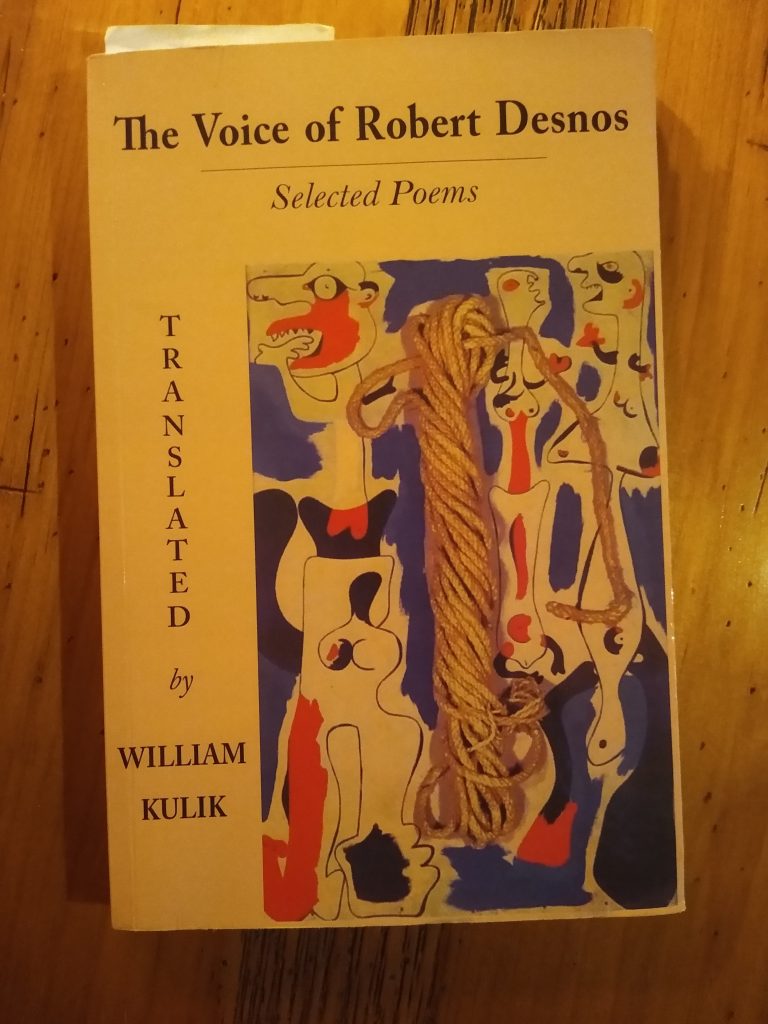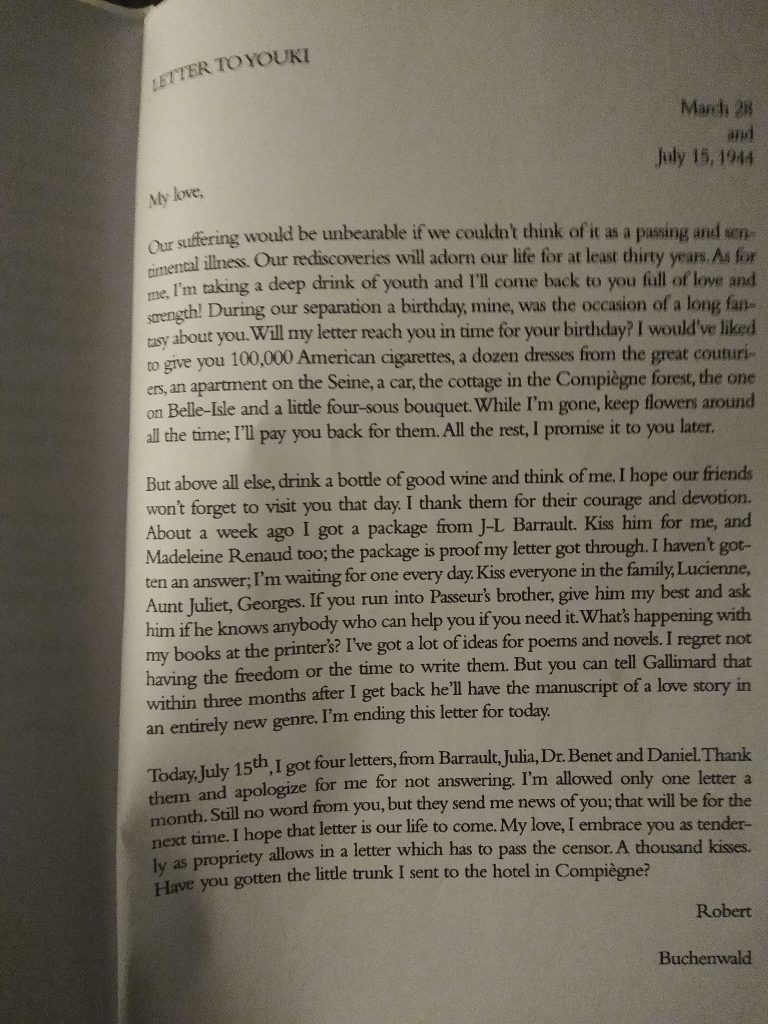
Living men, have no fear of me, I am dead./ Nothing is left of my spirit or my body.
-Epitaph, Robert Desnos
While I’m gone, keep flowers around all the time; I’ll pay you back for them.
-Letter To Youki, Robert Desnos
I do not believe one should call oneself a poet, that is a distinguishment saved for the delineation of others. Perhaps you aspire to write poetry – that is fine, commendable even. Better yet, I write verse is not too terribly self-indulgent. I realize it’s pedantic, so I should add that I don’t care to correct anyone who calls himself or herself a poet, rather this is to say that I believe the occupation of poet is sacred and so it is out of a sense of humility and awe that I would not call myself a poet.
I intended these paragraphs to be a defense of poetry. But poetry transcends any mortal defense. It is not to be relegated or mitigated in terms of identity. Though lovers be lost, love shall not, said the poet; all poems are love poems, said another. And while you can’t get the news from poems – per William Carlos Williams – men die miserably every day for lack of what is found there… So instead of a defense of that which doesn’t need defending, I offer instead the story of Robert Desnos. Or to quote Emerson’s essay on The Poet: For we do not speak now of men of poetical talents, or of industry and skill in metre, but of the true poet.
A poet traffics in love and triumphs over death. The true poet cannot be killed, except on his own terms.
Robert Desnos is a poet. Born in France, he was a key figure in the surrealist movement, publishing over a dozen books in his short life. He wrote for the Resistance during the Occupation in Paris before being arrested. He survived Auswitchtz, then Buchenwald, finally succumbing to typhoid in Terezin.
Desnos, perhaps as much as any poet before or sense, understood how language is used to shape reality. He knew that poetry is a way of alluding to the alchemical formula which forms the world we know and gives us the ability to reshape it. Rather than a toying with words, poetry is a participation in the essence of the world.
Not long before he died, Robert Desnos was taken from the concentration camp where he was interned, placed in the bed of a truck with many others who were imprisoned with him. The mood was dark. It was clear to everyone that the truck was headed for the gas chambers. As you might imagine, no one could bring themselves to speak. By the time the truck arrived, even the guards fell silent.
The danger of men just doing there jobs is that they mean well and are easily relegated to silence. Yet hope lies in the ability of silence to remind men of their duty to other men and to G*d. It has less to do with miracle than it does possibility.
That’s when The Poet rises.
He, Robert Desnos, seizes the man across from him, takes up his palm. While Desnos was known to have spent time in the parlor of Madame Sosotris, it is unlikely he ever learned from her the art of cheiromancy. Still, he was a poet and master of what is written and so he read the lines of the man’s hand. Young and resigned, the man soon learned he had not lived half his life yet. He would be eighty-one when he died, have nine grandchildren all told, and three sons by the time he was 27. He would leave them each an inheritance of 9,000 francs.
And you, Madame, wasted in breast and hip but pale and lovely of face as the moon herself, in these lines here, I see your third marriage – to an American tycoon! I am jealous of the poems this pattern here insists you write. And of course, your son, he will be a famous mathematician!
And the old man, who stood first, as if volunteering to be first down from the truck: sixty years were not enough for courage such as his. He would live to smoke a cigarette every day for the rest of his 117 years!
And as the poet read and continued to read the palms of the hands of those around him, one by one as they rose to step down from the truck, the air in the truck bed lightened. It is increasingly harder to despair when a way through the weeds is cut. A way forward, a way out.
A way is all it takes sometimes.
And so it was for the guards. It’s arguable they never believed too much in what they were doing to begin with. Perhaps they were just waiting for someone to offer another option. Maybe they were superstitious, feared being cursed. Whatever it was, they loaded the prisoners back on the truck, Desnos included, sent them back to the camp and they all lived out their destinies another day.

